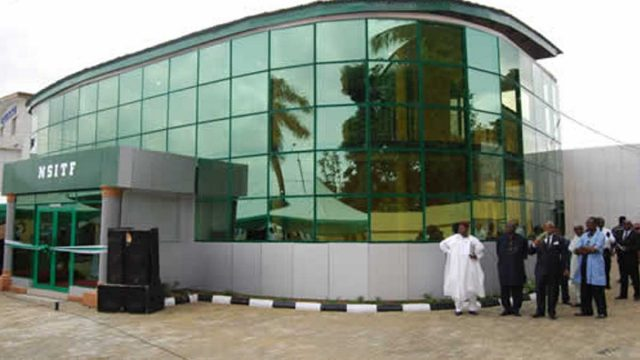
THE appointment of a new managing director and the reconstitution of a management board for the Nigeria Social Insurance Trust Fund by the President, Major General Muhammadu Buhari (retd.), might not rescue the outfit from its quagmire. Apart from the new appointments, the President also directed that “the former Managing Director of the Fund, Bayo Somefun, and three other former Executive Directors with the NSITF, are to refund to the treasury of the Fund a total of N181 million being alleged illegal overpayments in salaries and allowances.” The Senate is investigating N61.1 billion allegedly diverted by the NSITF in 2018.
Yet, this might not settle the problem of endemic corruption in the agency. Designed to provide compensation to employees who suffer from occupational accidents, injuries, or deaths in the line of duty through the implementation of the Employees Compensation Act, the organisation is funded by deducting 1.0 per cent from all government and private sector employees enrolled in the scheme. However, the NSITF has become more synonymous with fraud than its actual mandate because some individuals have made the institution their cash cow.
For years, the NSITF, which controls billions of beneficiary funds, has been enmeshed in corruption scandals. This has prevented the agency from actualising its potential. In 2015, the Economic and Financial Crimes Commission opened investigations into the management of the NSITF under the leadership of the then Chairman, Ngozi Olojeme. It alleged the mismanagement of N60 billion. Eventually, in 2017, five senior officials were arraigned in court for receiving kickbacks and conspiring to divert N18 billion, contributed by the Federal Government as take-off grants and an Employees Compensation Scheme for the Ministries Departments and Agencies.
Olojeme was declared wanted and eventually returned to the country and turned herself in. She was released and mysteriously disappeared again before turning herself in a second time in April. The EFCC claims to have seized 48 properties worth billions from her, but no convictions have been secured yet.
After the EFCC probe, then acting President, Yemi Osinbajo, in October 2017, appointed a labour activist, Frank Kokori, as the Chairman of the NSITF in a bid to reposition the agency. However, the Minister of Labour and Employment, Chris Ngige, whose ministry supervises the NSITF, refused to inaugurate the board. Rather, Ngige set up a panel to investigate the alleged fraud perpetrated by the previous management of the agency, which the EFCC had already probed. Even after the panel had submitted its report in June 2018, the minister still refused to inaugurate the board for another 11 months; labour leaders stormed his residence to protest, while thugs disrupted activities at the ministry. With the backing of the Presidency, Ngige eventually inaugurated the board in May 2019 after the agency had been deprived of a board for a total of 18 months due to needless politics.
In his Workers’ Day address in 2019, the President of the Nigeria Labour Congress, Ayuba Wabba, alleged that the minister had appointed his former Special Assistant, Michael Akabogu, as General Manager, Risk Assessment, at the NSITF in a bid to consolidate his hold on the scheme. Months after, the NSITF was again in disarray. Ngige on July 2, 2020, approved the immediate and indefinite suspension of the NSITF top staff for allegedly squandering N3.4 billion on sham staff training.
His action was condemned by the Nigeria Employers’ Consultative Association and the House of Representatives for not following due process, but the resolution of the House was ignored. Instead, Ngige set up another panel to probe the NSITF. Amid the probe, which lasted nearly a year, the suspended NSITF directors levelled several allegations of fraud against Ngige.
In May 2021, the suspended officials were sacked by the President while Akabogu was appointed as the MD. The sacked officials were also asked to return the N181 million they allegedly diverted or face prosecution.
Buhari claims the fight against insecurity, corruption, and the revival of the economy as the cornerstone of his regime. But what beneficial reform has his regime effectively pursued besides the incessant removal of heads of agencies who have differences with their supervising ministers as seen in the cases of the Minister of Justice, Abubakar Malami, and erstwhile acting Chairman of the EFCC, Ibrahim Magu; as well as the Minister of Transportation, Rotimi Amaechi, and the Managing Director of the Nigerian Ports Authority, Hadiza Usman?
As an insurance scheme that relies on remittances from employers of labour, the several cases of fraud rocking the NSITF might not encourage full compliance from companies, including those operating factories whose workers have one of the highest rates of workplace injuries and deaths linked to their exposure to heavy machinery, toxic and flammable chemicals, extreme temperatures, and other potential dangers.
There is, therefore, an urgent need for the scheme to be reformed. The presence of a board in the NSITF is expected to insulate the agency from undue political interference, but clearly, that purpose has been defeated.
Significantly, the amount of money the NSITF claims to have spent on compensation is less than a tenth of what has been allegedly diverted in recent times. For instance, the organisation says it has spent over N4 billion in compensation to workers for workplace injuries, diseases, and deaths through the ECS since 2011, while within the same period, the EFCC claims over N60 billion has allegedly been mismanaged. This should worry any serious country.
The recommendations of the Presidential Joint Board and Audit Investigation Panel set up in July 2020 to investigate the infractions of the Public Procurement Act, 2007, and the Financial Regulations in the NSITF should be implemented. It is not enough to just remove officials who are suspected to have stolen public money. They should be duly prosecuted, and all stolen funds returned. Political interference and diversion of funds must therefore stop so that the agency can actualise its mandate and gain the trust of Nigerians.
END

Be the first to comment